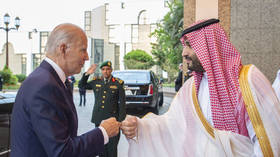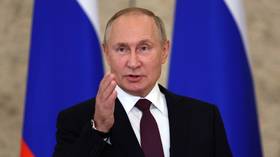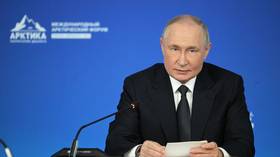Biden vows 'consequences' for Saudi Arabia over OPEC decision

US President Joe Biden has warned Saudi Arabia of ramifications, after the de-facto leader of the Organization of the Petroleum Exporting Countries (OPEC), announced oil output cuts.
“There’s going to be some consequences for what they’ve done with Russia… I’m not going to get into what I’d consider and what I have in mind. But there will be – there will be consequences,” Biden warned in an interview with CNN.
OPEC+, which includes Russia, last week announced that it will reduce oil production by two million barrels a day starting in November, the group’s largest reduction since the start of the Covid-19 pandemic. The move angered Washington, which repeatedly urged OPEC to boost output instead. The US wants to push down oil prices, which are seen as helping Russia, the world's second-largest oil exporter, finance the conflict with Ukraine.
When asked by CNN whether it was time for Washington to re-evaluate its relationship with Riyadh, Biden said, “yes,” and indicated that Congress would decide on the actual measures when it’s back in session after the midterm elections.
Biden’s comments came a day after US Senator Bob Menendez, who chairs the Foreign Relations Committee, demanded that the US “freeze all aspects” of its cooperation with Saudi Arabia. Earlier, US Senator Richard Blumenthal and Representative Ro Khanna, called for weapons sales to Riyadh be stopped. Other US officials have voiced similar opinions over the past few days.
Meanwhile, President Vladimir Putin insisted on Tuesday that Russia’s actions regarding energy resources are aimed at ensuring market stability, not creating problems.
“We are actively working within the framework of OPEC+… Our actions, our decisions are not directed against anyone… They are aimed at stability in the world energy markets… so that supply and demand is balanced,” Putin said while meeting with his UAE counterpart, Mohammed bin Zayed Al Nahyan. The UAE is also a member of OPEC and was warned over the oil output cut alongside Saudi Arabia.
Most officials from OPEC+ states said that the cut is a “technical, not a political decision” and cited a “risk of recession” as contributing to the move. Analysts say the measure is also timed to keep oil prices from dropping ahead of the seasonal drop in demand.
For more stories on economy & finance visit RT's business section














